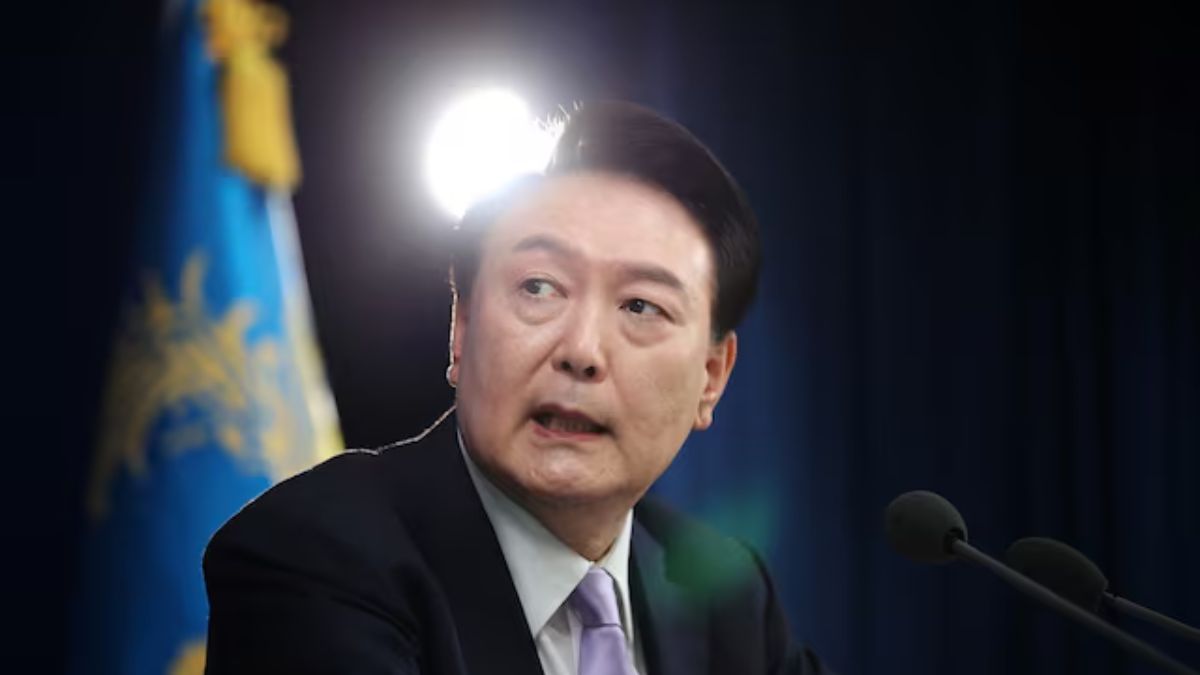It had been a week of turmoil and trouble in South Korea with President Yoon Suk Yeol squarely at the centre of the storm.
Once a celebrated public prosecutor, known for his anti-corruption crusades, Yoon rose to the nation’s highest office in just a few years. However, as president, he staggered from scandal to scandal before tumbling the country into chaos by declaring martial law and sending troops and helicopters to the parliament.
But what followed was an unexpected twist—after a night of drama and protests, Yoon was forced into a swift U-turn when lawmakers rejected his decree.
Yet, the crisis was far from over.
Public outrage reached its peak, with opinion polls showing an overwhelming majority of citizens calling for Yoon’s removal. On Saturday, lawmakers acted on the growing discontent and voted to impeach the president.
In the 300-seat National Assembly, 204 lawmakers backed the impeachment motion on charges of insurrection, while 85 voted against. Three lawmakers abstained, and eight votes were declared invalid.
Yoon now becomes the third South Korean president to face impeachment by parliamentary vote. If the decision is upheld by the Constitutional Court, he would be the second leader in the nation’s history to be removed from office.
So how did Yoon’s remarkable ascent to power end in such a dramatic downfall? Here’s a closer look at his story.
From Prosecutor to President
Born in Seoul in 1960, just months before a military coup, Yoon Suk Yeol pursued a career in law and quickly rose to prominence as a star public prosecutor and anti-corruption crusader.
Yoon played a pivotal role in the impeachment of Park Geun-hye, South Korea’s first female president, in 2016. His efforts led to her conviction on charges of abuse of power and subsequent imprisonment.
In 2019, as the nation’s top prosecutor, Yoon indicted a senior aide of Moon Jae-in, Park’s successor, in a high-profile fraud and bribery case.
Impressed by his track record, the opposition conservative People Power Party (PPP) courted Yoon as their presidential candidate. His reputation as a reformist gave him an edge, and he accepted the offer.
In March 2022, Yoon narrowly defeated Lee Jae-myung of the Democratic Party to become South Korea’s president but by the narrowest margin in the country’s history.
Missteps & scandals
Yoon was never much loved by the public, especially by women —he vowed on the campaign trail to abolish the ministry of gender equality — and controversies have come thick and fast.
After vowing during his campaign to abolish the Ministry of Gender Equality. Scandals quickly followed his presidency, tarnishing his image further.
One of the most devastating was his administration’s handling of the 2022 Halloween crowd crush , which tragically resulted in over 150 deaths. The incident sparked national outrage, with many blaming Yoon’s leadership for the poor response.
Voters also criticised his government for exacerbating food inflation, a stagnant economy, and growing restrictions on freedom of speech.
Also read: South Korean economy shrinks for first time since early 2020
Yoon faced accusations of misusing his presidential veto, most notably to block a bill that would have allowed a special investigation into allegations of stock manipulation involving his wife, Kim Keon Hee.
His reputation took another hit when his wife was secretly filmed accepting a $2,000 designer handbag as a gift. Yoon defended her, claiming it would have been rude to decline.
Further damaging his standing, his mother-in-law, Choi Eun-soon, was sentenced to one year in prison for forging financial documents in a real estate deal, though she was released in May 2024.
As discontent grew, a petition calling for Yoon’s impeachment gained significant traction earlier this year, causing the parliamentary website to crash due to the overwhelming response.
A political fallout
As president, Yoon has maintained a tough stance against nuclear-armed North Korea and bolstered ties with Seoul’s traditional ally, the United States.
Last year, he sang Don McLean’s “American Pie” at the White House visit , prompting US President Joe Biden to respond: “I had no damn idea you could sing.”
However, Yoon’s attempts to restore ties with Japan, South Korea’s former colonial ruler, were met with fierce resistance at home.
Since the opposition Democratic Party won a parliamentary majority this year, Yoon has been politically sidelined. His budget was recently slashed, and his authority significantly diminished.
In a televised address, Yoon defended his decision to declare martial law, claiming it was necessary to counter “anti-state elements plundering people’s freedom and happiness.” His office later argued that the move was meant to break through legislative gridlock.
But to use his political difficulties as justification for imposing martial law for the first time in South Korea since the 1980s was absurd, an analyst said.
“Yoon invoked Article 77 of the South Korean constitution, which allows for proclaiming martial law but is reserved for ’time of war, armed conflict or similar national emergency’, none of which appears evident,” Bruce Klingner, a senior research fellow at the Heritage Foundation, told AFP.
“Yoon’s action is a damning reversal to decades of South Korean efforts to put its authoritarian past behind it,” he said.
With input from AFP
)